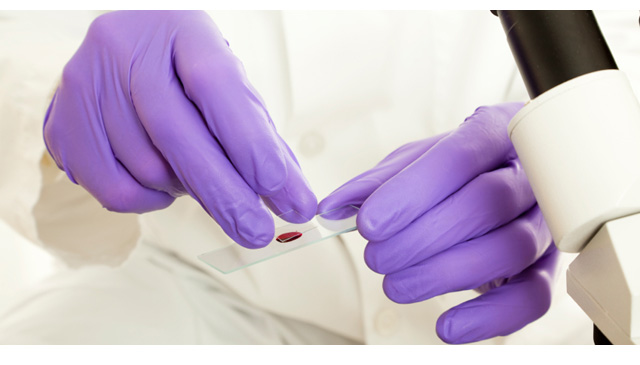Criminal Justice vs. Criminology
 Even people within the field of criminal justice often confuse the terms criminal justice and criminology, but the two fields are quite different and the terms should not be use interchangeably. When asked what they were studying, about half of all college students preparing to become police officers said they were studying criminology, while the other half said they were studying criminal justice. Certainly, both criminal justice and criminology are related fields of study, but for those pursuing career opportunities in criminal justice or criminology, its important to be able to answer the question, “what is the difference between criminal justice and criminology.”
Even people within the field of criminal justice often confuse the terms criminal justice and criminology, but the two fields are quite different and the terms should not be use interchangeably. When asked what they were studying, about half of all college students preparing to become police officers said they were studying criminology, while the other half said they were studying criminal justice. Certainly, both criminal justice and criminology are related fields of study, but for those pursuing career opportunities in criminal justice or criminology, its important to be able to answer the question, “what is the difference between criminal justice and criminology.”The Difference Between Criminal Justice and Criminology
Criminology is the study of the anatomy of a crime, specifically its causes, consequences and costs. Criminal justice, on the other hand, refers to established systems for dealing with crime, specifically detection of crime, detaining of criminals, and criminal prosecution and punishment. Criminal justice is directly associated with law enforcement. Students pursuing career opportunities in criminal justice will study the different components of criminal justice and law enforcement systems. Students pursuing a career as criminologist, will study the behavior patterns, backgrounds, and sociological trends of criminals. While both fields are different, criminologists and criminal justice professionals work together in the criminal justice system to thwart crime.Criminology
As there are many different specialties within the field of criminology, its can be difficult to identify one career that encapsulates what “typical” member of the profession is and does. Depending their background, education, experience and position, a criminologist may perform any number of functions, including crime scene investigation, interview and interrogate suspects, participate in autopsies, or profile criminals. Some within this field focus almost exclusively on research, others work as consultants for governments agencies or liaisons, while some work as consultants and employees of private security companies. Criminologists also work with law firms and courts to provide expert testimony in criminal proceedings and a few work within the prisons systems assisting in the rehabilitation of convicted criminals.No matter what career specialty of criminology pursued, most criminologists will be involved in data collection and profiling. Criminologists are analysts. They study crimes, collect data and then analyze their findings to provide actionable information and recommendations. Criminologists seek to identify who committed crimes, when crimes were committed, and why they were committed. As part of their analysis, criminologists consider psychological behavior, socioeconomic and economic indicators, and environmental factors.
Much of the work performed by criminologists involves the collection of statistics which are used to develop active profiles to be used by other law enforcement professionals and agencies to better understand and predict criminal behavior. In order for a criminologist's work to be useful and effective, it must be precise and accurate. Consequently, professionals working in criminology must have a good understanding of statistics and math.
Launching a career in criminology typically requires a college level education criminology, statistics or mathematics. While an associate's degree will qualify candidates for some entry-level positions, a bachelor's degree is usually the minimum entry-level requirement, and a master's degree or PhD is preferred. The best positions and career advancement opportunities are reserved for professionals who have master's or doctorate degree.
Even with a degree, success as a criminologist, requires dedication, intelligence, the ability to analyze complex situations, and a desire to help improve society. Skills including creativity, verbal and written communication, and an analytical mind are essential attributes of a criminologist.
Criminal Justice
Unlike criminology, where the primary focus is on the study and analysis of crime, criminal justice revolves around the societal system(s) set up to address criminal behavior and the perpetrators of crimes. The three main components of the criminal justice system in the United States include: law enforcement, the courts and corrections. These components are intended to prevent and punish criminal behavior. Criminal justice careers almost always fall into one of these three component categories.The most visible and popular component of criminal justice is law enforcement – and within law enforcement police officers. Police officers are our front line of defense against the criminal element in society. They patrol communities and focus on crime prevention. They also investigate crimes once they've occurred and apprehend suspected criminals. Other law enforcement offers that perform duties similar those of police officers include FBI Agents, DEA, ICE, border patrol and US Marshals. Once someone has been arrested, they then enter the courts system.
While less visible to the public than law enforcement, the courts system is just as vital to the U.S. criminal justice system. The primary purpose of the courts is to determine the guilt or innocence of suspected criminals. The courts system include various criminal justice professionals including attorneys, judges, and bailiffs, to name just a few. In the courts a suspect is considered innocent until proven guilty and all suspects are entitled to a fair trail. However, if found guilty, a suspect is given a sentence, or punishment, and is remanded to the corrections system.
The U.S. corrections system is responsible for enforcing punishments and carrying out sentencing as mandated by the courts. The corrections system is made up of incarceration, probation and parole. All three subsets are designed to punish and rehabilitate convicted criminals. Careers in corrections includes probation officer, parole officer, prison warden, and guard, among others.

About
Privacy Policy
Contact Us
Submit a Resource
